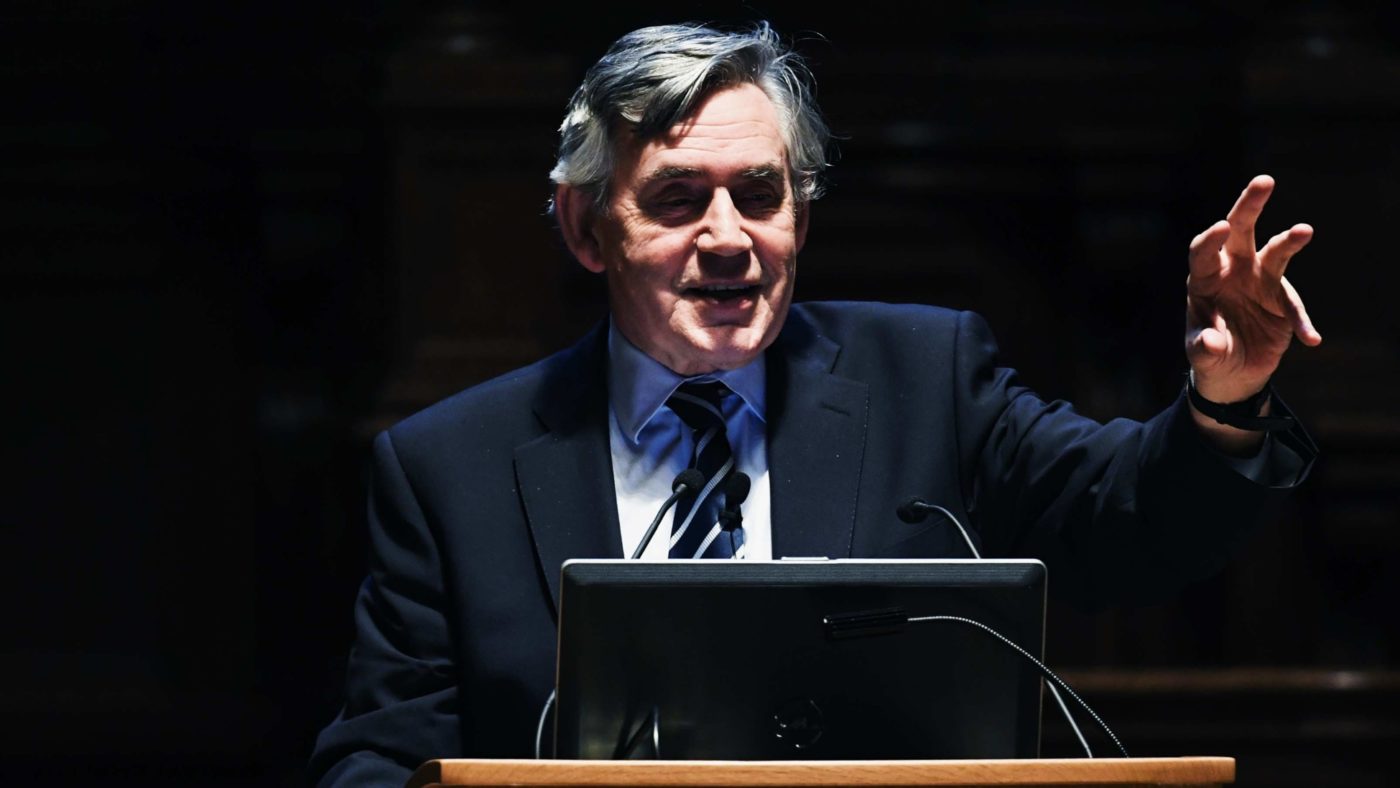When reality changes you might as well get with the programme. That, at any rate, seems one conclusion to be drawn from Gordon Brown’s latest expedition from the lair in which, with only periodic exceptions, he has confined himself sink sulking off from Downing Street seven years ago. Gordon’s alive, however, and back with a new tome; a memoir even longer on self-justification and special pleading that is customary for the genre. Look at me! Look, you remember me, don’t you?
Even so, Brown is not wrong about everything. Jeremy Corbyn is indeed a “phenomenon”. As Brown told the BBC, “We are in a new world. People have to accept that people are looking for answers that, at least for the past few years, the traditional political leaders have not been able to provide.” In those circumstances, he did not quite say, you may understand why the previously unacceptable or implausible becomes ever more plausible or acceptable.
And there is something to this. It is increasingly apparent that Brexit and Corbyn are related phenomena. Each represents a thirst for a different way of doing things; each is a howl of rage against the crises of our times. Each, you might also say, searches for answers from a prelapsarian past that never actually quite existed.
But it is also the case that each represents an attempt to find an answer to some large questions: how do we regain control, not just from supra-national institutions such as the EU, but also from supra-national corporations and markets? You need not endorse or enjoy the answers offered by Brexit or Corbynism to appreciate these are real questions of significant import. The world has become too large, too complex and, above all, too distant from us. A correction is overdue.
Like Brexit, Corbynism is a movement rejecting the proposition that economic prosperity should be considered the key driver of government policy. New Labour did many things, but it accepted that “sharing the proceeds of growth” required there to be growth to share. Corbyn’s vision is more punitive: the wealthy will pay until we run out of wealth.
Brexiteers, however, are also happy to sacrifice some amount of prosperity. Democratic legitimacy, and “taking back control”, matters more than maintaining the ease of our trading arrangements with the EU, hitherto the UK’s largest single market. That is a respectable view, if also one that is likely, at least in the short-term, to prove an expensive one.
The roots of both Brexit and Corbyn, however, run deep. Each is, in its way, a psychological response to an era of near-unparalleled globalisation. At the very least, they are responses to the great financial crash of 2008. Brown makes much – with some reason – of his response to that calamity and it is true that Britain’s position, dreadful as it was, might have become even more perilous had it not been for the actions taken by Brown and his chancellor, Alistair Darling (a chancellor now, sadly, no longer on speaking terms with a man who was his colleague for nearly 30 years).
Equally, however, that crash might not have clobbered Britain so hard but for some of the decisions taken by Brown during the long years in which he jealously hoarded control of economic policy. Brown remains peeved he didn’t receive sufficient credit for “saving the world”, forgetting that – rightly or wrongly – voters came to the view that he had helped endanger it in the first place.
The publication of a political memoir is an occasion for chutzpah, of course. Speaking to the Fabians on Friday morning, Brown averred that the so-called neoliberal consensus of which he might once have been considered a leading proponent, “has collapsed and has no intellectual credibility”. Some people might dare to think something similar about Brown.
But it depends on what you mean by “neoliberalism”, doesn’t it? Corbynism is defined, at least in part, by its hostility to markets, and its belief the economy can be fixed and controlled from Whitehall to the advantage of at least most people. Does Brown share that view? It seems improbable that he can, since doing so would require Brown to admit to having been wrong himself.
And Brown, whatever his shortcomings, was not wrong. If neoliberalism is taken to mean a belief that markets, while often imperfect, remain vital then neoliberalism has not forsaken its intellectual credibility. Even free markets are regulated markets, however, and only a tiny minority of doctrinaire zealots ever claim that no regulation is required.
Equally, for all that neoliberalism may mean one thing in China and quite another in Sweden, it is undeniable that the Great Openess the world has enjoyed since 1989 has coincided, and likely helped cause, the single greatest alleviation of abject poverty in human history. Different countries have moved into their “neoliberal” phase at different stages of their development and they have deployed sharply different means of doing so too, but the general pattern has held true: openness has been a path to greater prosperity.
A correction is evidently underway. If that means softening some edges then so be it and if doing so helps improve wages for the blue-collar classes in the developed world, then so much the better. But the risks of retrenchment are just as grave as the excesses this retrenchment is designed to counter.
Gordon Brown knows that, which is why he cannot quite bring himself to offer an unequivocal endorsement of Corbynism. But his equal inability to say Corbyn is leading Labour into an intellectual and economic cultural de sac is just as revealing. But then, for all he wrote a book on “Courage”, Brown has only rarely been considered a profile in courage himself.


